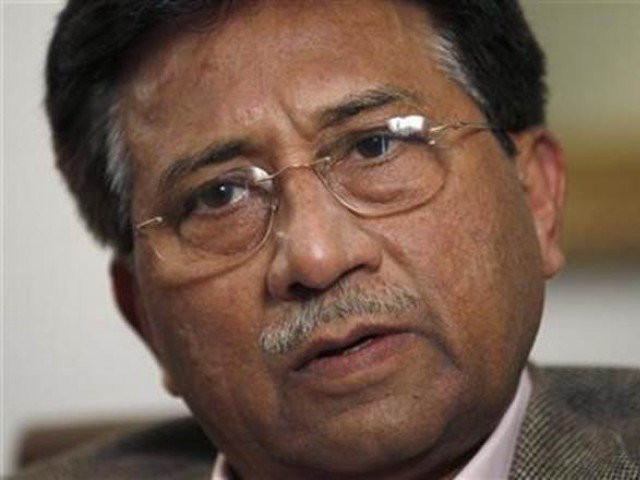SC orders to fix Musharraf’s plea
Justice Bandial fixes matter to be heard by a three-judge bench

Former military dictator General Pervez Musharraf. PHOTO FILE
During an in-chamber hearing, Musharraf’s counsel Salman Safdar appeared to present arguments. However, Justice Umar Ata Bandial fixed the matter to be heard by a three-member bench.
In December 2019, an SC-constituted special bench had sentenced Musharraf to death in absentia under Article 6 of the Constitution for the imposition of a state of emergency in 2007.
A month later, the former army chief approached the apex court seeking to overturn the high treason verdict. But the RO returned Musharraf’s plea after raising an objection under Supreme Court Rules 1980 that says a convict has to surrender to the authorities before filing an appeal.
Interestingly, Musharraf filed the appeal in the apex court even though a three-judge bench of the Lahore High Court (LHC) has already declared unconstitutional the filing of high treason case against him, formation of the Special Court as well as its proceedings, leading to the abolition of the death penalty handed down to him on December 17.
Musharraf’s appeal
The appeal stated that Musharraf’s health declined significantly requiring specialised treatment abroad and he was given permission by the court to leave the country on medical grounds.
Attorney Safdar, while filing the appeal, stated that the requirement of Musharraf surrendering is not applicable owing to his health condition.
It also mentioned that the former military dictator tried to return to Pakistan but was unable to because of his deteriorating health.
The petition also stated that the former president “deserves” his appeal to be entertained and heard by the Supreme Court.
It also mentioned that Musharraf is neither a “fugitive from the law”, nor is he a “proclaimed offender” or “absconder” – particularly because he left Pakistan for medical treatment with permission of the complainant.
Tenure
Musharraf imposed a state of emergency at a time when he faced growing opposition to his rule. All civil liberties, human rights and democratic processes were suspended from November 2007 to February 2008.
The final years of his rule were marked by struggles with the judiciary over his wish to remain head of the army while being the president. He quit in 2008, after a political party that backed him fared poorly in national election.
With additional input from Reuters



















COMMENTS
Comments are moderated and generally will be posted if they are on-topic and not abusive.
For more information, please see our Comments FAQ